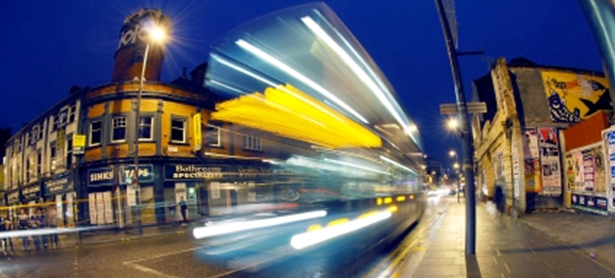|
Home  News News
New UK report makes the case for the urban bus
|

|
|
Investing in the urban bus represents 'exceptional value for money for the taxpayer' – this is the message from a new report published in the UK. Not only that but it also shows that there are social, health and economic benefits too.
14 March 2013 - The Case for the Urban Bus report shows investment in the urban bus provides multiple and overlapping economic, transport, social and health benefits, which extends to other road users as increased bus services reduces congestion for other road users.
Bus networks alone are estimated to generate over £2.5bn in economic benefits by providing access to economic and social opportunities, reducing pollution and accidents, and improving productivity.
Commenting on the report, David Brown, Chair of PTEG, the passenger transport authorities group who produced the report said: "This report suggests that while there is a great deal of focus on big transport infrastructure schemes as a way of generating growth, the urban bus also deserves more attention from policy makers".
“Investing more in the bus could be one of the biggest bargains there is for government in supporting big city economies, in getting the jobless back to work and in addressing some deep rooted, and ultimately costly, social challenges."
The report finds specific bus funding streams generate significant economic benefits:
- Spending on buses generates at least £2.80 of benefits for every £1 of public money spent – over a quarter of these benefits go to other road users due to buses’ role in reducing road congestion.
- The national concessionary fares scheme generates £1.50 of benefits for every £1 of public money spent – a high return for a social measure.
- The non-commercial bus services that local authorities support can generate benefits in excess of £3 for every £1 of public money spent. Most of these benefits are to the bus users who depend on these services to access jobs, education and healthcare.
- Due to the local nature of bus services and operations, much of the bus industry’s turnover (in excess of £5bn a year) is ploughed back into regional economies through the supply chain, and because the people who work on local bus services live and spend in their local areas.
|
|
The report highlights the key role that urban bus services play in tackling social exclusion - from linking jobseekers to jobs, to getting young people into education and training, to providing a way out of social isolation for older people.
Without the bus, the report finds: 'Our cities would be more divided, the poorest and the most vulnerable would be more isolated and severed from the opportunities that many take for granted, and so much talent that dynamic and prosperous cities need would go to waste as training, education and jobs would be unreachable for many young people.'
|
|
Learn more about Greener Journeys
|
| |
|














